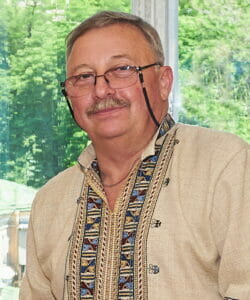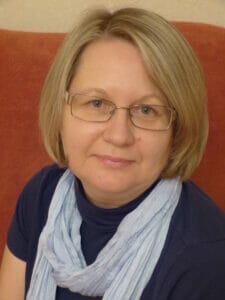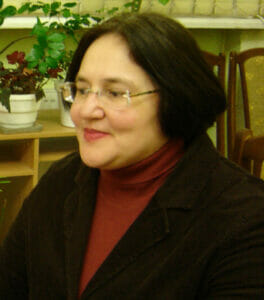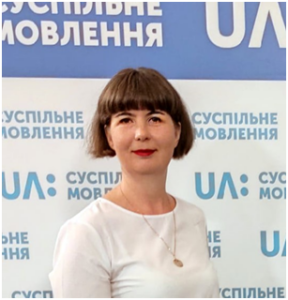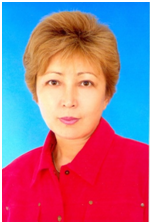Research Grants 2023
The HREC Research Grants Competition is held annually to support academic research on the Holodomor, the publication of research results, the preservation of materials, and the organization of and participation in academic venues. Each year, a new thematic focus is established, though proposals for other topics are considered. The applications are reviewed by a committee of scholars and HREC associates.
-
2023 HREC Research Grants Competition
The Holodomor Research and Education Consortium (HREC) announces its 2023 Research Grants Competition. Grants are intended to support research that expands our knowledge and understanding of the Holodomor; publication and translation of research results; preservation of and increasing access to materials; and organization of and participation in academic forums. Examples of research that could be supported include the policies of foreign governments during collectivization and the Holodomor; the fate of various groups living in Ukraine (ethnic, social, etc.); diaspora communities and their kin in Soviet Ukraine; and the Holodomor at the national and sub-national levels (eg., oblasts, raions, villages). Grants to individuals will not exceed C$7,000.00, with most grants ranging from C$1,000.00 to C$3,000.00 in the past years. HREC also accepts proposals for larger collaborative projects that engage scholars and institutions from both in and outside Ukraine.
Deadline: May 15, 2023
Individual Projects 2023
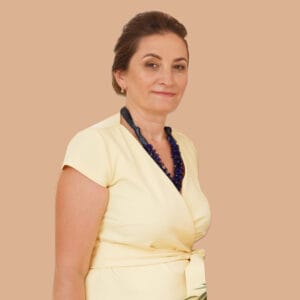
Zoriana Kunch
Institute of Humanities and Social Sciences, National University Lviv Polytechnic
“Holodomor of 1932-1933 through the prism of Ukrainian emigrant literature: Studying the works of Mykhailo Sytnyk”
This project aims to investigate the Holodomor of 1932–1933 as portrayed in the writings of the Ukrainian emigrant writer Mykhailo Sytnyk in the context of the national artistic and biographical discourse.
Holodomor of 1932–1933 in the works of well-known Ukrainian émigré writers Vasyl Barka, Ulas Samchuk, Todos Osmachka, Yuri Klen, Yar Slavutych, Oleksa Veretenchenko, Ihor Kachurovsky, Vasyl Chaplenko, and others has been widely explored in Ukraine and the diaspora. The Holodomor is also vividly represented in the works of a Mykhailo Sytnyk (1920–1959), Ukrainian writer, journalist, and editor whose life and artistic journey began in Ukraine and ended in the USA, whose body of work is less known and explored.
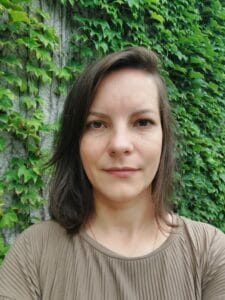
Iryna Skubii
PhD Candidate, Queens University
“Looking from the Ground Level: Environmental History on Ukraine’s Holodomor”
Iryna Skubii’s research project aims to present the opportunities of applying environmental history approaches to famine studies. Focusing on the example of the Holodomor in Ukraine and examining the place of food waste and the impact of famine conditions on animals, the study contributes to the scholarship on human-nature, human-waste, and human-animal relationships and demonstrates the larger effects of famine on environment and its different species and habitats. Looking at ways of enriching the understanding of the Holodomor and other Soviet famines as human, environmental, and animal catastrophes, this study takes “a look from the ground level” and presents an avenue for an environmental history of the Holodomor. The grant enables the presentation of Iryna’s research at the 2023 ASEEES Annual Convention panel “New Approaches to Famine and Holodomor Studies: History, Environment, and Memory.”
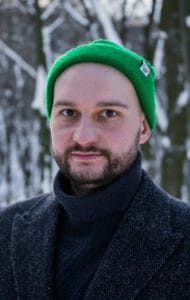
Serhii Tereshchenko
Columbia University
“Genocide Romantics: Ulas Samchuk, Iaroslav Halan, and Oleksandr Dovzhenko in the 1930s-1940s”
Serhii Tereshchenko’s research examines the relationship between images and tropes connected with Ukrainian identity in the 1930s and 1940s and their justifications for genocide politics. Since this viewpoint is too dangerous to state openly, it is instead expressed through literature; the literary devices used to do so rely on stereotypical depictions of Ukrainian culture and history for their meaning. They imagined universes in which not every Ukrainian would meet their criteria, and such a Ukrainian would have to be exterminated as a malevolent member of society.
Serhii examines three authors with opposing political backgrounds: Ulas Samchuk, Iaroslav Halan, and Oleksandr Dovzhenko as examples of adversarial actors who, although swapping social names, advocate the methods of extermination for whatever purpose. They educate readers for environments where eliminating competitors is not only moral but also a necessity of survival.

Victoria Trofimenko
The University of Texas at Austin, USA
“Translation into English of the play about the Holodomor Yakiv”
USSR. 1928. Yakiv, a devoted communist, struggles to establish communism in a Ukrainian village, only when he is betrayed by the party and witness the devastation of forced starvation in 1932-33 as a result of his action, facing his wife committing suicide, he risks his life, to save 2800 villagers from hungry death, an oppressive ideology and postulates he used to cherish.
Upon successful completion of this project, the translated play “Yakiv” will be pitched theaters, radio stations, and podcast shows. The goal is to give the story a chance to find its place in these media.
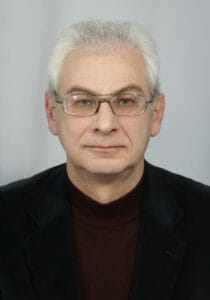
Serhii Vodotyka
Kherson State University
“The resistance of Ukrainian peasants during collectivization and Holodomor 1932-1933: the evolution of protest capacity”
The project attempts an historical and political evaluation of the transformation of the protest movement of the Ukrainian peasantry in 1929-1933, during the accelerated construction of socialism, complete collectivisation of agriculture and under the pressure of the 1932-33 Holodomor.
The project explores quantitative and qualitative changes in the protest movement, its support from political opposition and concurrence with other anti-Stalinist movements. However, the main focus remains on whether the peasant resistance influenced the policies of the Bolshevik Party - their purpose, narrative and grounds, directions, nature, and pace.
Collaborative Projects 2023
Hennadii Boriak
Institute of History of Ukraine, National Academy of Sciences of Ukraine
Oksana Yurkova
Institute of History of Ukraine, National Academy of Sciences of Ukraine
Kateryna Lobuzina
Vernadsky National Library of Ukraine, National Academy of Sciences of Ukraine
“Publishing Holodomor Era Documents (Kyiv Oblast): Oksentii Musiienko. Patent na holod. Shchodennykovi notatky. 1931–1933 (Patent on Famine. Diary's Notes. 1931–1933)”
This publication commemorates sources to the history of the Holodomor which were destroyed during the Russia’s full-scale invasion in Ukraine.
During the expedition to the Ivankiv Local Lore and History Museum (Kyiv Oblast) in August 2020, Hennadii Boriak and Oksana Yurkova discovered and digitized a 48-page notebook with diary’s notes and poems of a Holodomor witness, local schoolteacher Oksentii Musiienko. Later, historians also managed to find a few more Musiienko’s notebooks from the 1930s that were preserved by Musiienko's nephews.
Unfortunately, the Ivankiv Museum burned down on the second day of the full-scale Russian invasion of Ukraine (February 25, 2022) as a result of a Russian airstrike on the museum’s building. Thus, digital copies became the only evidence of the existence of Musiienko's diary, along with some other exhibits, such as the original photos from 1920s- 1930s.
The book includes the annotate reconstructed biography of Oksentii Musiienko (1914–1941), his diary’s notes and poems from 1931–1933. The illustrated supplement will reproduce both Musiienko’s photographs and all the pages of Musiienko's notebook from 1932– 1933, which was burned down in the Ivankiv Museum.
Natalia Kuzovova
Kherson State University, Ukraine.
Albina Zhanbosinova
L.N. Gumilyov Eurasion National University, Nur Sultan, Kazakhstan
“Repressed Ukrainians in Kazakhstan and Kazakhs in Ukraine during collectivization, dispossession and Holodomor”
The purpose of this collaborative project is to explore the nature and scale of eviction campaigns, kulak exile, deportation, as practices of social cleansing of border and internal territories during the period of collectivization and dispossession in Ukraine and the Kazakh Autonomous Soviet Socialist Republic in the 1930s. The practical measures applied by the Soviet authorities on the ground were universally repressive in nature.
This subject has not been addressed adequately in historiography due to the lack of mass sources suitable for revealing the anthropology of the history of social cleansing, socio-demographic and reporting indicators. The authors utilize unique documents identified by them in the archives of Ukraine and Kazakhstan and explore a phenomenon of the counter flows of deportees, Ukrainians to the Kazakh Autonomous Soviet Socialist Republic, and Kazakhs from the southern regions of Kazakhstan to Ukraine, previously unknown to historians. Documentary sources reveal and detail the process of deportation, social adaptive practices of Ukrainian and Kazakh peasants in a different environment.
